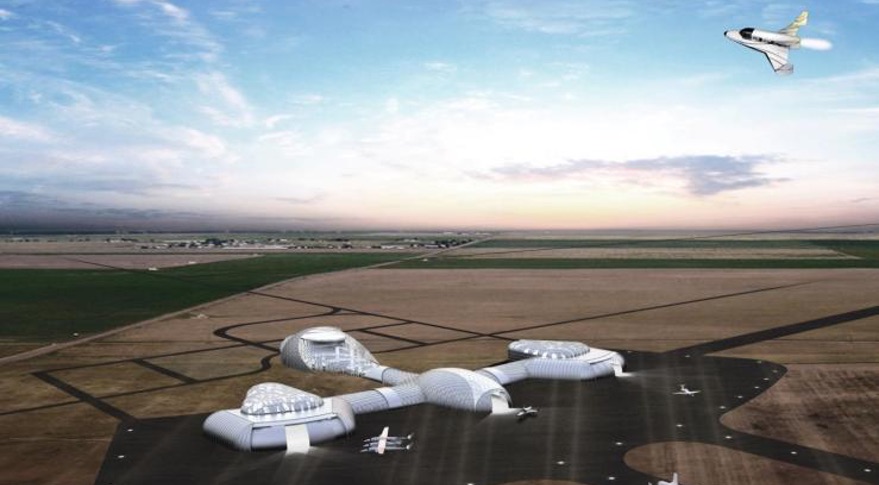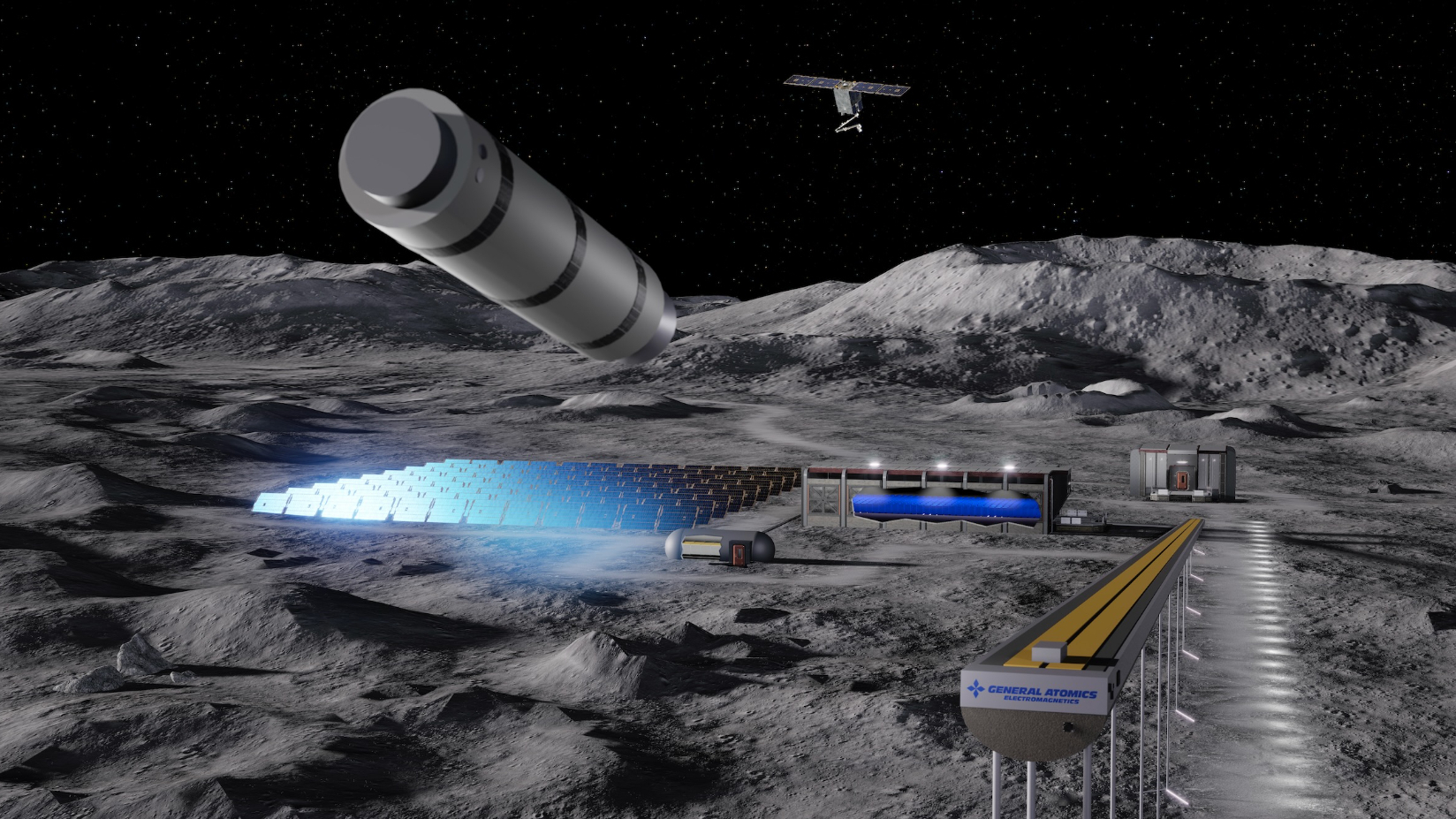Colorado Airport Receives FAA Spaceport License

Breaking space news, the latest updates on rocket launches, skywatching events and more!
You are now subscribed
Your newsletter sign-up was successful
Want to add more newsletters?

Delivered daily
Daily Newsletter
Breaking space news, the latest updates on rocket launches, skywatching events and more!

Once a month
Watch This Space
Sign up to our monthly entertainment newsletter to keep up with all our coverage of the latest sci-fi and space movies, tv shows, games and books.

Once a week
Night Sky This Week
Discover this week's must-see night sky events, moon phases, and stunning astrophotos. Sign up for our skywatching newsletter and explore the universe with us!

Twice a month
Strange New Words
Space.com's Sci-Fi Reader's Club. Read a sci-fi short story every month and join a virtual community of fellow science fiction fans!
WASHINGTON — A Colorado airport has received a commercial spaceport license from the Federal Aviation Administration despite a lack of announced users of the site and concerns about conflicts with aviation.
The FAA's Office of Commercial Space Transportation awarded a launch site operator's license, more commonly known as a spaceport license, to the government of Adams County, Colorado, Aug. 17 for Front Range Airport. The airport will now be known as the Colorado Air and Space Port.
The facility is a general aviation airport east of Denver and about 10 kilometers southeast of Denver International Airport. It currently has two runways, each 2,400 meters long, as well as more than 3,000 acres of property for development. Reaction Engines, a British company working on a hypersonic engine known as SABRE, is building a facility there for testing engine technology.
The license is the culmination of several years of work by airport and local officials to win an FAA license. Advocates of what was previously known as Spaceport Colorado argued that establishing a commercial launch site would help bolster the state's growing space industry.
"Spaceport Colorado will leverage Colorado's leadership in aerospace and space exploration, our well-educated workforce, and our excellent higher learning institutions to attract new businesses and continue pushing the boundaries on what we can learn and accomplish in space," said Rep. Ed Perlmutter (D-Colo.) in a statement. "This spaceport designation brings with it many exciting opportunities, and I look forward to Colorado's continued engagement in the growing commercial space industry."
For now, though, the new spaceport designation only represents opportunity, rather than confirmed launch activity. No commercial launch companies have committed to operating from the spaceport, something its operators acknowledged in the announcement.
"The license from the FAA is an important step in the process, and we're looking forward to partnering with a company that shares our vision for the spaceport and the technological and commercial benefits it brings to Colorado," said Dave Ruppel, director of the Colorado Air and Space Port.
Breaking space news, the latest updates on rocket launches, skywatching events and more!
The spaceport's license supports operations of what is known in FAA parlance as "Concept X" vehicles. These are suborbital vehicles that take off from runways under jet power, like a conventional aircraft, and fly to some distance from the airport before igniting a rocket engine for the suborbital spaceflight phase of its mission. The vehicle then returns to make a horizontal landing either as a glider or under jet power.
However, no such vehicles are in active development today. Rocketplane Global was working on such a vehicle nearly a decade ago, called Rocketplane XP, but filed for Chapter 7 bankruptcy liquidation in 2010. Air-launch systems that use a carrier aircraft to release a rocket-powered vehicle, like Virgin Galactic's WhiteKnightTwo/SpaceShipTwo system, are known as Concept Z vehicles at the FAA, and were not included in the environmental assessment developed as part of the licensing process.
The spaceport also faced criticism about the potential effects launches there could have on aviation activities at nearby Denver International Airport. The issue came up during a June 26 hearing by the House aviation subcommittee on commercial space transportation regulatory reform.
"I recently met — I won't say who it was — people raising concerns about the proximity of a proposed spaceport that does not have an operator, which is a 'build it and they will come' proximate to Denver International Airport, and the potential for interference with operations there," said Rep. Peter DeFazio (D-Ore.), ranking member of the full House Transportation and Infrastructure Committee, at the hearing.
Tim Canoll, president of the Air Line Pilots Association (ALPA) and one of the witnesses at the hearing, said he was concerned that segregating spaceflight and aviation traffic would be an "order of magnitude more difficult" in that situation versus conventional launch sites.
Canoll noted it was difficult for ALPA to assess specific impacts of launches from the spaceport on operations at Denver International because any vehicle that does plan to use the spaceport will have to get a launch license from the FAA, a process that would include separate reviews of how it would affect airport operations. "It's hard for ALPA to comment on one or the other without seeing the full picture concept," he said. "The inability to match the two to one issue is where we're running into problems with giving good comments to the FAA as they consider these."
Lori Garver, the general manager of ALPA and former NASA deputy administrator, also mentioned concerns about launch operations from that proposed spaceport during a commercial space panel discussion at the organization's 2018 Air Safety Forum Aug. 1. "I called the folks that I've worked with over my career and were assured there are no operators planning to fly out of Denver," she said. "But it was hard for us to imagine, then, how they can just get a license."
Colorado Air and Space Port is not alone, though, among spaceports that lack space launches. Of the 10 other spaceports licensed by the FAA, three have yet to conduct a launch under an FAA license or experimental permit: Cecil Field in Jacksonville, Florida; Ellington Airport in Houston ; and Midland Air and Space Port in Midland, Texas . A fourth, Oklahoma Air and Space Port in Burns Flat, Oklahoma, hosted only three low-altitude test flights under experimental permits by Armadillo Aerospace in 2007.
The lack of activity has not deterred others from either seeking spaceport licenses for existing airports or developing entirely new commercial launch sites. "We're trying to stand up a spaceport. We're in very preliminary talks," said Julie Engel, president of Arizona's Greater Yuma Economic Development Corporation, during a space conference held at Arizona State University Aug. 20. She sought advice from the conference's luncheon speaker, Kevin O'Connell, new director of the Office of Space Commerce, on how to work with the government and convey the "seriousness of what we're trying to do."
This story was provided by SpaceNews, dedicated to covering all aspects of the space industry.

Jeff Foust is a Senior Staff Writer at SpaceNews, a space industry news magazine and website, where he writes about space policy, commercial spaceflight and other aerospace industry topics. Jeff has a Ph.D. in planetary sciences from the Massachusetts Institute of Technology and earned a bachelor's degree in geophysics and planetary science from the California Institute of Technology. You can see Jeff's latest projects by following him on Twitter.

